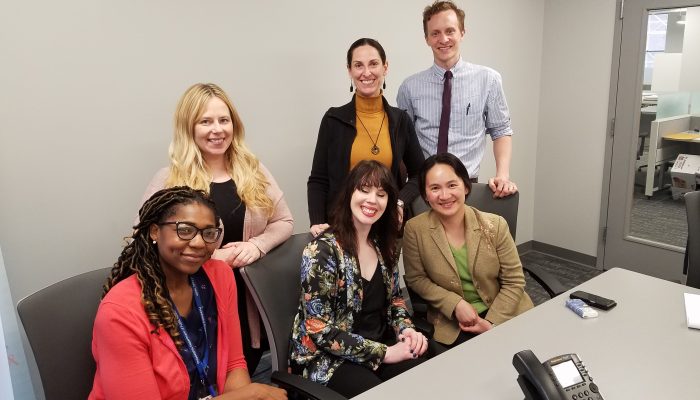Life can be stressful for all of us. Life can be far more stressful for someone who has lost a child to gun violence, or lost a job, or been evicted from her home. The mental toll that these experiences take can lead to or worsen physical illness. So it makes sense – even if it’s not common – for medical clinics to care for their patients’ mental health as well as their physical health. Our City health centers now offer the support of Behavioral Health Consultants (BHCs) to help manage the life stress of our patients.
Patients come into our health centers to manage their diabetes or high blood pressure or heart conditions. But often the symptoms they complain about – like difficulty sleeping – reflect anxiety, depression, or other psychological problems instead of physical problems. When the medical staff spot mental symptoms, they refer the patients to the BHCs, who are trained in clinical social work or clinical psychology. Under the best circumstances, the patients see the BHCs immediately through a “warm handoff.” Other patients see the BHCs later by appointment.
And what do the BHC’s do for those patients? Sometimes it’s as simple as helping the patients deal with tasks that they are too stressed to manage on their own, like making appointments. Sometimes it’s helping patients recognize that their disturbing feelings are perfectly normal under their difficult circumstances – that the patients aren’t “crazy.” Sometimes, with techniques such as “motivational interviewing” and “cognitive behavioral therapy,” the BHCs help patients think through and plan out concrete solutions to their problems. And sometimes the BHCs simply help patients manage their physical health problems – like diabetes and high blood pressure – or help them quit smoking. All this can happen in a single, focused visit or a few visits.
Some patients with more severe mental illness may benefit from more specialized mental health services or medications. In those situations, the BHCs help the patients connect to a therapist or psychiatrist, and continue to help them when the patients return to our clinics.
Many patients, though, are reluctant to “go into therapy.” It may feel inconvenient to them, and for some it may reinforce a false feeling that they really are “crazy.” Many older men, for example, believe they are showing weakness by talking about their feelings. So if we had to refer these patients to a mental health clinic, they wouldn’t go. But if the BHCs can get a conversation started, initially-reluctant patients can open up and accept the help.
For example, one BHC spoke to an older man who had spent 10 years hustling “on the streets” before he found and stuck with a legitimate job. He was now supporting a family and had been doing well. But then his grandfather, on whom he had relied for emotional support all his life, had just died. The man was struggling emotionally and was considering heading back to the streets to supplement his income. The BHC helped him think through what that would mean and helped him make a smarter decision.
In a big step forward, the BHCs are now also helping address the opioid crisis by working with medical staff to treat patients with opioid addiction with medication-assisted treatment, using a medication called buprenorphine (or Suboxone). With this treatment, patients can get both their medical care and treatment for the drug addiction at the same place, with the privacy and confidentiality that goes with that, instead of a specialized methadone clinic.
As humans, our brains and our bodies are fully connected. Our City health centers work every day to see that people are treated that way.
Find out more
Find out more about City health centers.
Find out more about local mental health resources at Healthy Minds Philly.




